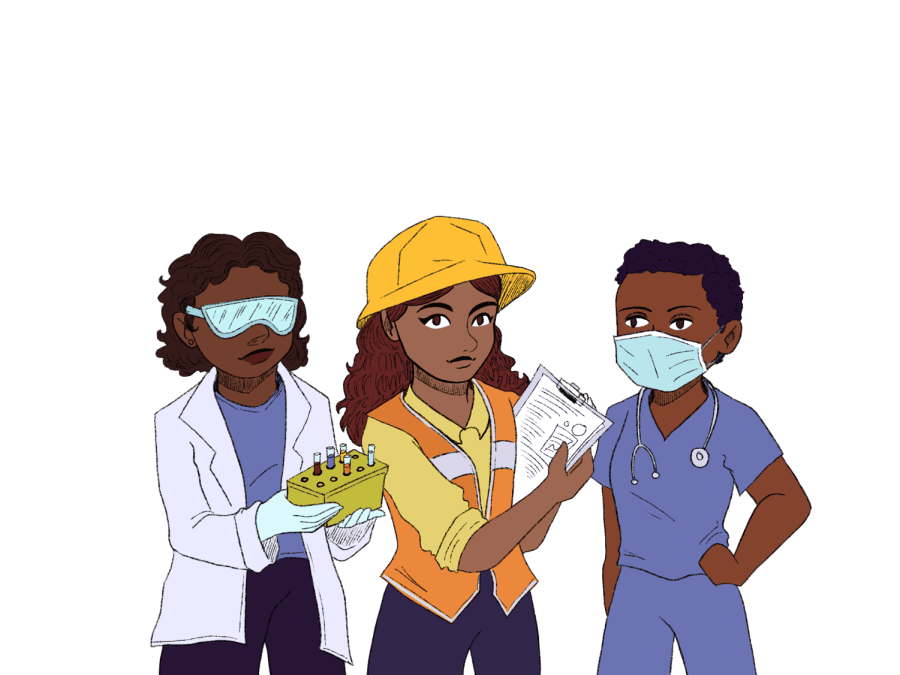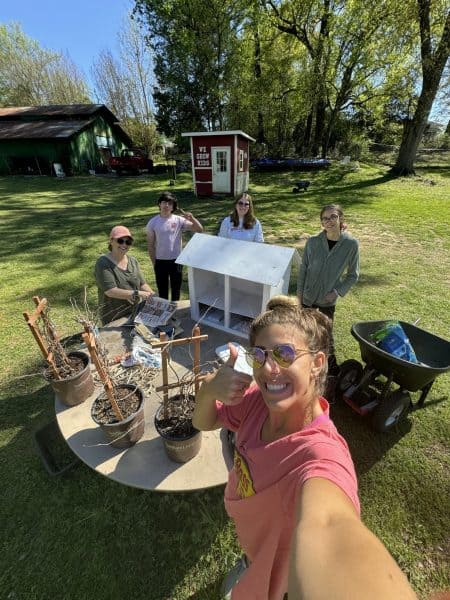STEM organizations promoting diversity on campus
October 20, 2022
The science, technology, engineering and mathematics field is growing at a rapid pace with employment being projected to increase by 8% by 2029. With the ever-changing employment rate also comes more diversity, especially in such a wide-ranging field as STEM. However, only 9% of the STEM workforce is Black.
At the University, approximately 1,527 of 13,346 students in fields considered STEM or STEM-adjacent are Black, which is around 11.4%.
While it may seem difficult to navigate such a large field that’s lacking diversity, The University of Alabama offers clubs and resources dedicated to finding support for Black students as they pursue their degrees.
National Society of Black Engineers
The National Society of Black Engineers is one of the biggest student-governed organizations in the United States. Founded in 1975, the goal of the organization is to support and uplift young Black collegiate and pre-collegiate students who hope to work in technology and engineering careers.
The mission of the National Society of Black Engineers is “to increase the number of culturally responsible Black engineers who excel academically, succeed professionally, and positively impact the community.”
Not only does the organization benefit college students, but it also engages younger students. Thousands of prospective students, grades four through six, are eligible for the national Summer Engineering Experience for Kids camps. The National Society of Black Engineers prides itself on developing leaders in the STEM industry while promoting diversity and inclusion.
The University of Alabama’s chapter of the National Society of Black Engineers “hosts events that focus on professional development, academic development, and community service.”
As well as highlighting the ability to create strong cover letters, resumes and communication skills with professors and peers, the University’s chapter believes that real change can be made through collaboration, which is what the chapter and organization promotes.
Shanissee Lee, a junior majoring in aerospace engineering and a member of the National Society of Black Engineers, said she works to be well-rounded and is aware of the difficulty associated with this career path. Lee said the challenges lie outside of the classroom, as well.
“In this major path, and career field, I am a double minority and am normally one of 100 in a majority of the rooms I enter,” Lee said. “Once I earn this degree, it will be monumental in showing other minority women that we do belong in these fields despite the extra challenges it may take us to get here.”
Despite the hardships, Lee said she is able to find joy through the National Society of Black Engineers, especially when it comes to networking and relating with her fellow members.
“This organization has helped me to find a community in which I am supported,” Lee said. “Things can feel easier and more motivating when you see peers that look like you going through the same things and accomplishing these goals.”
The National Society of Black Engineers isn’t the only club on campus dedicated to supporting Black and minority students in the STEM field. The Minority Association of Pre-Medical Students, Students Against Medical Racism, and even expanding beyond the STEM field, National Black MBA Association, all have the same purpose of providing community and education for minority students.
Minority Association of Pre-Medical Students
This campus organization represents the undergraduate and post-baccalaureate students of the Student National Medical Association. They are committed to supporting current and future underrepresented medical students. The Minority Association of Pre-Medical Students works to address the needs of marginalized communities and promote the development of exceptional physicians.
The organization is “committed to supporting current and future underrepresented minority medical students, addressing the needs of underserved communities, and increasing the number of clinically excellent, culturally competent and socially conscious physicians.”
From hosting MCAT study nights and a friendsgiving to partnering with other local organizations to host budgeting and financial education nights, MAPS has general body meetings around once a month.
For more information about the organization and its upcoming events, check out their Instagram.
Students Against Medical Racism
Students Against Medical Racism aims to educate students going into the healthcare and policy-making field about the disparities that affect minorities in healthcare. The organization’s members collaborate to prepare for their future profession and actively work in the Tuscaloosa community. They hold hygiene drives and fundraisers and donate to local foundations in order to help struggling Tuscaloosa communities.
The organization provides its members with resources to learn about the history of medical racism and even hosts special guest speakers from different medical fields. The organization’s goals are for students to leave the club with a better understanding of what minorities might face in the medical field and hopes to inspire positive change.
“Students will leave this club with a better understanding of the systemic racism that has plagued the country and will now be ready to go into the working force ready to make a change,” said the organization’s SOURCE webpage.
To learn more about this organization, click here.
While being on any STEM path at any university is challenging, The University of Alabama has clubs and organizations that can help students find a community that keeps them motivated and on track.











